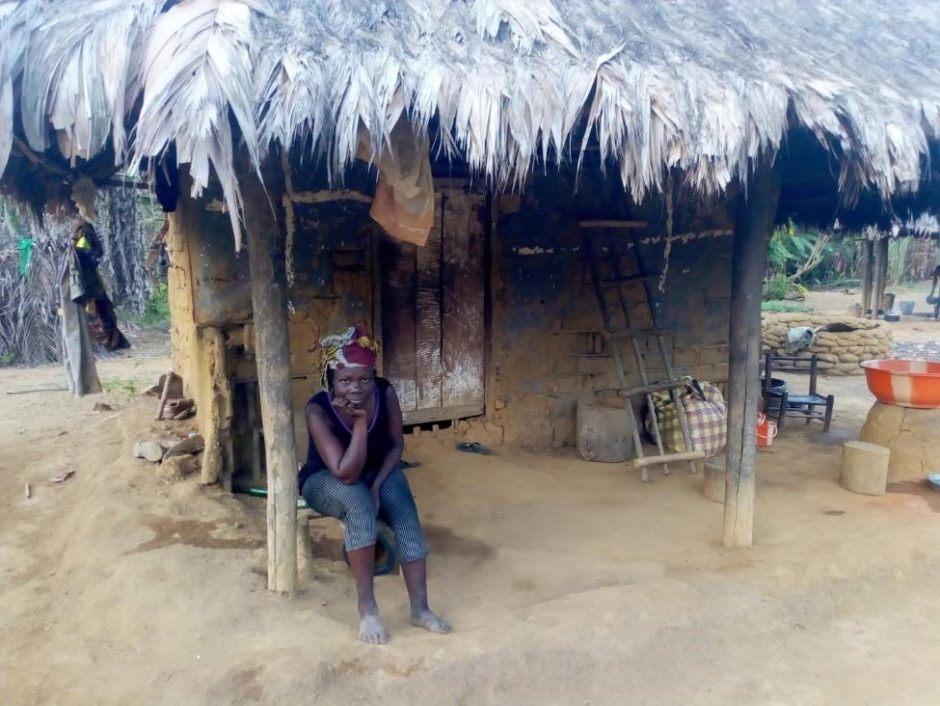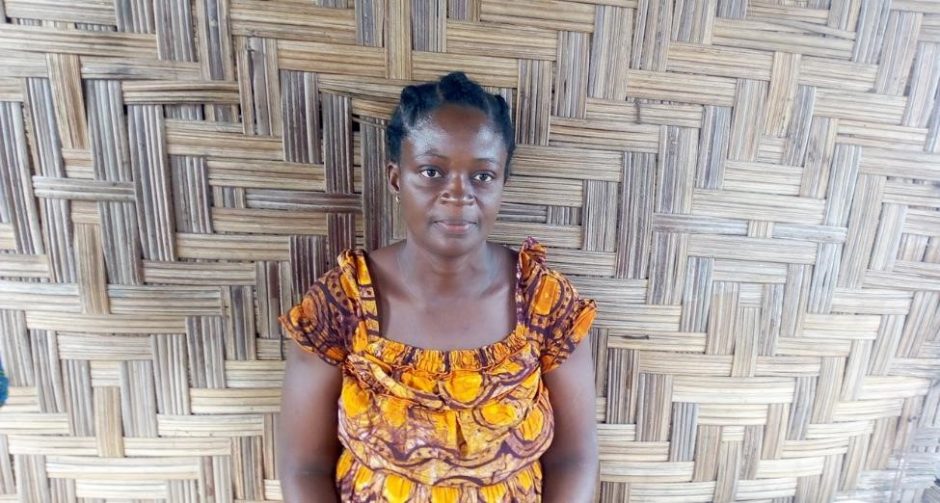
KPEWUDU TOWN, River Cess – The last 27 years have not been kind to Mechen Barchue. The single mother with two children to support lives in a thatched hut she constructed herself and sells charcoal to make ends meet.
This story first appeared on The Bush Chicken as part of a collaboration for the West Africa Justice Reporting Project.
Barchue blames much of her misfortune on the trauma she suffered as an 18-year-old when the Jungle Lion faction of Charles Taylor’s National Patriotic Front of Liberia, under the command of Generals Sampson and Roland Duo, took her to their ITI base as one of their bush wives in 1994.
“Life has not been easy for me since I came back from the bush,” Barchue said in an interview in the yard outside her hut here in Kpewudu Town. “No one wants to have anything to with me because they said I [was the] rebels’ wife. It was wartime and we never had our own way.”
Barchue is one of the thousands of Liberian women who suffered shocking violence during the wars. According to the Truth and Reconciliation Commission report, nearly 26,000 or 28 percent reported violations were against women and girls. Every faction was found guilty of kidnapping women, gang raping them, forcing them into sexual slavery, and passing them around as ‘wives’ of roaming combatants. Women suffered the indignity of having children that they bore after being raped. Children born of these illicit relationships are now referred to as “rebels’ children” or “children without back or front” in various communities.
Sixteen years since the wars ended, these children and mothers continue to face trauma. But many say it is the rejection and stigmatization from relatives and friends that have been the hardest part.
“They are treating me like I was the one who carried myself to the rebels,” Barchue said, tears forming in her eyes. “I suffered in the hands of the rebels and now I am suffering in the hands of my own people. To even get food to eat is not easy for me.”
Barchue said since her return, any man who comes her way and finds out that she was abducted by the rebels ill-treats her and eventually leaves her life. She has two children ages 9 and 6 to support as a single parent.
Barchue was the only survivor of a massacre here in 1994 that took the lives of 15 of her friends before she was abducted as a bush wife for the rebels. She can never stop telling the stories of the killings she witnessed while she was being taken to the rebel’s base ITI, where she stayed till the end of the crisis.
Like Barchue, Josephine Wreh, 45, told The Bush Chicken how she is suffering to raise two children she bore by one of the rebels while in captivity in ITI.
According to Wreh, she was captured on February 23, 1994 by NPFL rebel forces that were going to battle with the Liberia Peace Council rebel group. That was one month before Barchue was captured.
“When the rebels entered our town, I was inside trying to put my baby to sleep,” Wreh said. “All I heard was my mother telling me that soldiers were in the town. When I opened the door, I saw a bare-footed man with [a] painted face without [a] shirt.”
Moses Garjay, the bodyguard of unit commander General Sampson, was the man who captured, abducted, and kept Wreh as his bush wife throughout the war years.
“I had a nine-month-old child when he [caught] me. He wanted to kill the child because he said my son was embarrassing him,” Wreh said. “Only God [made] for him not to kill my son. I managed and sent my son to my mother because if I was going to try to run away, they were going to kill me.”
Wreh bore two children for Garjay – a boy, now 24, and a girl, now 18 – but according to her, since her release, Garjay has abandoned the children.
Wreh’s heartache was compounded when she returned home.
“My husband was already having another woman before I came back,” Wreh cried as she explained. “I couldn’t blame him because he was nearly killed by Garjay the day I was captured. He waited for a very long time and he needed to move on with his life.”
Wreh said she is currently staying with a friend in a round mat house in the ELWA community in Paynesville, but she is considering going upcountry to stay with her foster sister in River Cess.

Garjay currently lives in Buchanan, Grand Bassa where, according to him, he does construction work to survive. Underscoring the mental justification that many rebels made when they captured women, Garjay claimed Wreh “left him” immediately following the disarmament and the 2005 elections.
“Soon the war finished the woman said I was not her type, so she left me and went,” Garjay said. “I don’t have any job to do now. I can take people contract to do construction before I can get money.”
Martha Kangar, the executive director of the Bassa Women Development Association in Buchanan told The Bush Chicken in a telephone interview that her organization has dealt with many women like Barchue and Wreh who face rejection and stigmatization.
“What we are looking at now is how we can empower these women,” Kangar said. “What I will recommend is there is a need for more awareness to be created so that women in such situation will group themselves and work together.”
Kangar also called on communities to be more open and not judgmental of these women who were victims of war.
In order to give hope to those war-affected women and girls, Kangar said, “The community should take the lead by reintegrating them into the families and community.”
